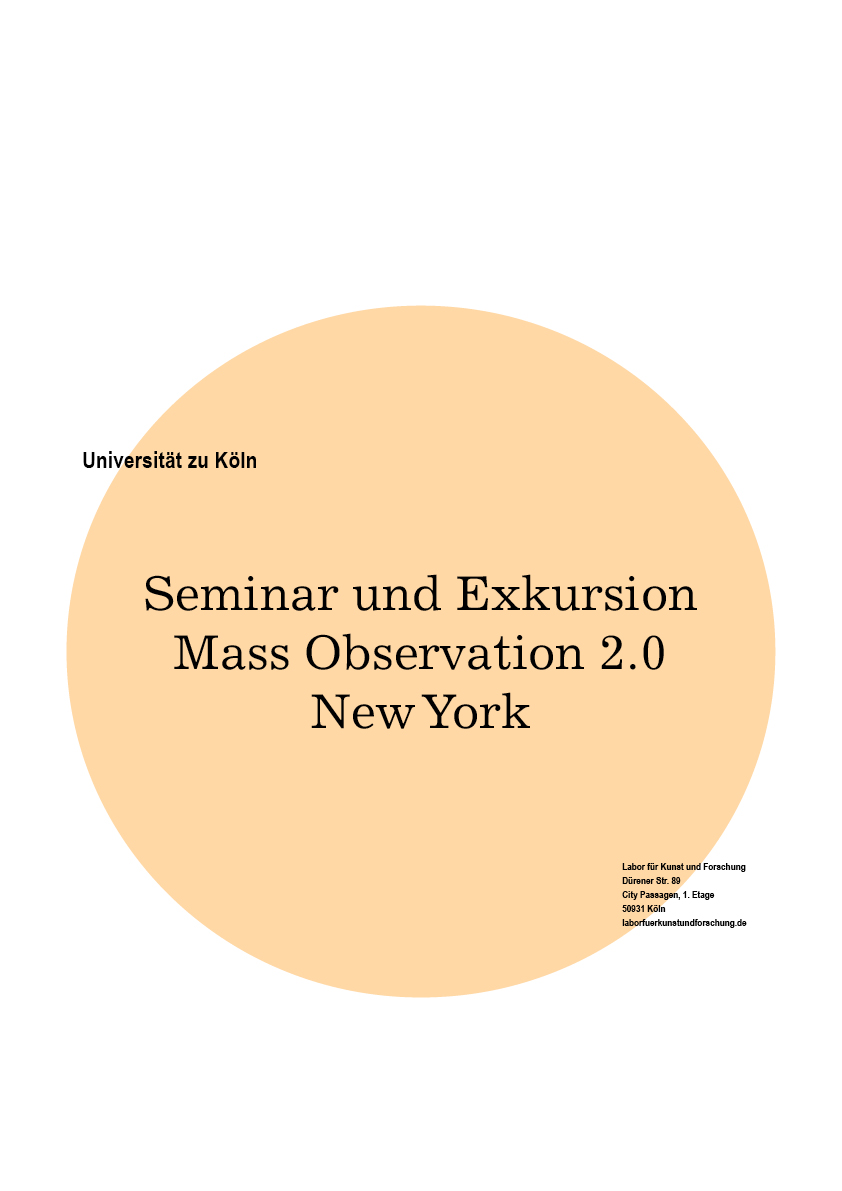
OPENING RECEPTION MASS OBSERVATION 2.0:
RESEARCH INTO THE EVERYDAY AT THE ARNOLD AND SHEILA ARONSON GALLERIES, THE NEW SCHOOL, PARSONS, NEW YORK
Part exhibition, part archive, and part platform for workshops, events and talks, Mass Observation 2.0 aims to create a participatory space for research and exchange. It is based on a collaborative transdisciplinary seminar and project by Parsons/The New School, School of Art, Media and Technology, New York and the Institute for Art and Art Theory / Intermedia, University of Cologne.
The project aims to research everyday life with a theoretical and practical, analytical and investigative, critical and experimental, online and offline approach, and to understand the everyday as a phenomenon that since modernity continuously shapes our perception of the world and increasingly generates altered forms of communication and relatedness under the influence of new technologies. The exhibition features digital material in the form of a collective “dominant image” archive, creating and performing instructions devised by students as methods for defamiliarizing and interrupting habitual responses to the everyday, as well as artistic research projects.
Based on the studies of the historical social research organization Mass Observation, founded in 1937, which was conducted by British anthropologists, artists, social scientists and psychologists to respond to the fact that the everyday life of “common people” was not represented in the media nor in the political system of Great Britain at this time, the goal of this project is to question how everyday life is perceived today, in a globalized world, where the requirements of social media to perform oneself seem ubiquitous, and the demands of technology affects our sensibilities on an everyday level.
Investigative themes featured in the exhibition include: the changing construction and definition of “private” and “public”; “friends” and “strangers”; the ways in which the digital and built environment situates us as subjects; how these environments invisibly promote a passive or active engagement in everyday situations as well as the way recent shifts in technology have affected our relationship to everyday physical objects and materials.
For more info and the accompanying public program please see:
www.laborfuerkunstundforschung.de
This exhibition and the accompanying program was made possible with the generous support of Parsons, Art, Media and Technology School-based Funds, and the University of Cologne, Fund for Innovation in Teaching.

